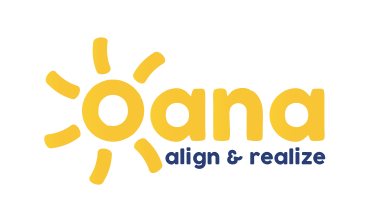First of all, what is this burnout syndrome?
It comes from English and means “to burn completely”; to be totally consumed.
Burnout is a state of physical, mental, and emotional exhaustion combined with a great deal of doubt about the direction of life and personal meaning. It sets in as a state of uncertainty about fundamental aspects: values, needs, and oneself.
Burnout is related to the perception that all resources and motivation are exhausted.
Guide for Well-Being at Work shows that last year, during the pandemic, employee well-being decreased dramatically, and the numbers speak for themselves:
- Anxiety increased from 6.33% before the pandemic to 50.9%.
- Depression increased from 14.6% to 48.3%.
- Post-traumatic stress disorder increased from 7% to 53.8%.
- The stress level increased from 8.1% to 81.9%.
Another study, conducted by the World Health Organization in 2019, shows that depression and anxiety are at the root of decreased productivity, and globally, the cost of this decrease had reached 1 trillion dollars.
Things are not better in Romania either. 76.51% of Romanian employees say they have experienced at least one episode of burnout in the last five years, with the main causes identified by them being workload, organizational culture (work environment), direct manager, lack of vacations. Moreover, 621% of Romanian employees believe that companies' concern for employee well-being is more declarative, according to a study conducted by whereIwork.ro and Thrive Global Romania.
What are the factors that lead to burnout?
The period we are living through is the hardest in the history of the last 5 generations.
We are in an era of information overload, no longer related to pandemics or wars. An era defined by excess of all kinds: extraordinary opportunities, cataclysmic news, endless tasks, multiple projects, emergencies and extremely important things, deadlines that have already passed but that you have to respect.
In 2035, half of existing jobs could be replaced by robots and artificial intelligence.
In 10 years, most of the jobs people hold will be jobs that don't exist now.
More videos are uploaded to YouTube in 60 days than all the video creation produced by all televisions in the last 60 years.
We have never been smarter in medicine, robotics, technology, but never has the planet's population suffered from a higher percentage of mental illness and suicidal thoughts.
In the US, 80% of young teenagers have or have had suicidal thoughts at least once in the last two years.
The pandemic and more recently the war have stretched our nerves to the limit. Life seems hard, harder than it has been in the last 20-30 years. We are still waiting for that reset button, where we can completely end the medical panic, the masks, the vaccines, the social isolation. We are still waiting for that reset button, where we no longer hear the word "war" in conversations with friends.
Unfortunately, "peace" doesn't come unless you actively seek it. We are in the midst of information chaos and systemic dangers and cIf a person does not make conscious efforts to self-regulate and bring order to his ecosystem, he no longer has any chance of a calm, balanced life.
Are there also internal causes that can trigger burnout?
Certainly:
- lifestyle
- family situations
- aspects of personality
What are the symptoms of burnout syndrome?
- you feel overwhelmed (you feel like you're rushing between tasks and have no time for almost anything);
- you feel that you no longer have clarity, that your mind is foggy and that you no longer see where you are going;
- you are so tired that you only want 1-2-3 days of rest (even though you would actually need weeks or months);
- you are frustrated with the results you have compared to the effort invested;
- you feel like you are repeatedly banging your head against the door instead of opening it;
- you find yourself contradicting the people around you, trying to change opinions that seem like impenetrable medieval fortress walls, with moats filled with water all around, sharp spikes pointed at you and archers on the battlements ready to take you down;
- you feel like you are more impulsive than usual (you say or do things that you later regret);
We have 3 mantras of modern life:
- “I don't have time”
- “I am tired”
- “I am afraid”
Are there different types of burnout?
- General, caused by macro pressure and uncertainty
- Specifically, at work
- Lifestyle
Can burnout syndrome have more serious consequences?
- Yes, from physical illness
- Mental illness
- Job loss
- Severe material losses
- Loss of couple or family relationships
How can we prevent burnout syndrome?
- Pay attention to symptoms
- Assessment of stress and exhaustion levels through an assessment form
- Stress profile assessment
- Working with the self through awareness with the help of a coach, counselor or therapist for balancing, updating, resetting
- Balanced lifestyle
- Awareness of emotions associated with stress and exhaustion
- Relearning emotional vocabulary.
Should we go to the doctor if we have these symptoms?
- If the symptoms have worsened, yes, you should see a doctor.
How do we treat burnout syndrome?
For immediate but short-term solutions, with specific stress management techniques:
- A few days off
- A vacation
- Breathing techniques
- Meditation
- Yoga
- Healthy diet
- Physical exercises
For long-term solutions, the above techniques must be coupled with working with a therapist, counselor, or coach for a period at least equal to the one in which the burnout occurred.
We must work on reevaluating our beliefs, thought patterns; our needs, values, and personal purpose. Creating a personal vision and mission that is alive, authentic, and inspiring, and setting new goals that are congruent with our current vision of life.
Oana is a Holistic Career, Life and Leadership Coach, PCC, mentor, consultant, entrepreneur.
He is an ICF ambassador in Vienna.
In 2016, she was chosen Mentor of the Year by the Professional Women Network.
In the past, he worked as a consultant for the World Bank, NGO leader, and senior corporate executive.
He is a graduate of the Executive Master of Business Administration at Washington University & Asebuss.
Her coaching experience covers:
- Corporate managers who are at various stages of hierarchical growth or career transition
- Entrepreneurs who want to bring more efficiency and performance to their company, limit conflicts, and bring more cohesion to the team
- Freelancers or entrepreneurs in the start-up stage, who want to clarify their mission, vision, values, objectives, target customers, communication channels and the most effective communication methods
- People interested in their own evolution, in overcoming their own limits, in improving relationships with colleagues, managers, clients, life partners or their families.
As a facilitator for teams or groups he has worked:
- with teams from companies to update the mission, vision, values, objectives and align with them; for conflict management, increasing communication and influencing capacity
- with teams of teachers to increase collaboration through leadership and communication skills



